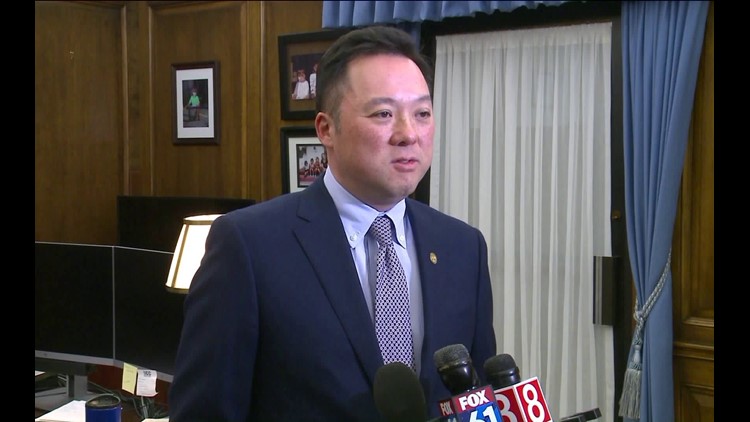HARTFORD — Connecticut Attorney General William Tong argued Tuesday that federal immigration authorities have begun attempting to deport some residents with past criminal records, even though their prior crimes were completely pardoned by the state’s Board of Pardons and Paroles.
The Democrat appeared before the 1st U.S. Circuit Court of Appeals in Boston to argue on behalf of Richard Marvin Thompson, an immigrant who received an unconditional pardon from the state’s board but still faces deportation. Federal immigration officials contend a pardon needs to come from a governor or the president under a waiver program.
Tong insists that marks a change in years of deportation practice.
“The law says that you shall have your deportation waived,” Tong told reporters after returning to Connecticut. Thompson “made that case to the immigration authorities and the immigration court and they said, ‘no, no, no,
Connecticut pardons do not count because they do not emanate from the president of United States or the governor.”
Tong said five other states have pardon systems similar to Connecticut’s, where board members are appointed by the governor. The states include Alabama, Georgia, Idaho, South Carolina and Utah.
“No one has ever said that Georgia’s pardon process doesn’t work or that Alabama’s pardon process doesn’t work. In fact, 47 states have some process that includes a board of some kind,” he said. “It was news to us that
Connecticut pardons suddenly don’t count when for 60 years they clearly did count.”
Both the Department of Justice and the U.S. Immigration and Customs Enforcement declined to comment.
In court documents, the Department of Justice noted “there is no question” Connecticut’s Board of Pardons is not the president or the governor. It is also not “enshrined” in the state’s constitution. Rather, the federal government argued, pardoning power in Connecticut is vested in the state legislature and not the state’s chief executive, as required by the federal Immigration and Nationality Act’s “Pardon Waive Clause.”
The federal government also noted in court documents that it has “exclusive domain over immigration law, including the power to designate which aliens are subject to removal” and therefore is not violating Connecticut’s sovereignty.
Thompson, who Tong said is currently being held in Alabama, came to the U.S. from Jamaica in 1997 at the age of 14 to live with his father, a U.S. citizen. In 2001, he was convicted of second-degree assault, stemming from a fight. He eventually had the charges pardoned in 2017. His case is similar to that of Wayzaro Walton, an English woman living in Hartford who was fully pardoned on March 27 of this year for past larceny charges. Walton was detained on the previous day, March 26, and is currently being held in Boston by immigration officials and faces deportation.
Walton’s attorney, Erin O’Neil-Baker, said federal authorities have the discretion whether to enforce removal orders and they are arbitrarily choosing to deport her client, who has been a permanent resident with a green card for 25 years.
“Only because of her convictions, she was given a removal order,” O’Neil-Baker said. “Now that her convictions have been absolved, then she should no longer have that removal order. She should not be detained.”
Carleton J. Giles, chairman of the Connecticut Board of Pardons and Paroles, said he’s disappointed and disturbed that the federal government is not recognizing the board’s pardons. He noted that the vetting process is very thorough and the board is made up of people who are experts in areas such as criminal justice and mental health. He said pardoning someone can unburden them from the stigma of a past criminal conviction.
“Everyone should be considered for a second chance,” he said. “And the federal government’s refusal to recognize our state’s pardons is a miscarriage of justice, short and simple.”



